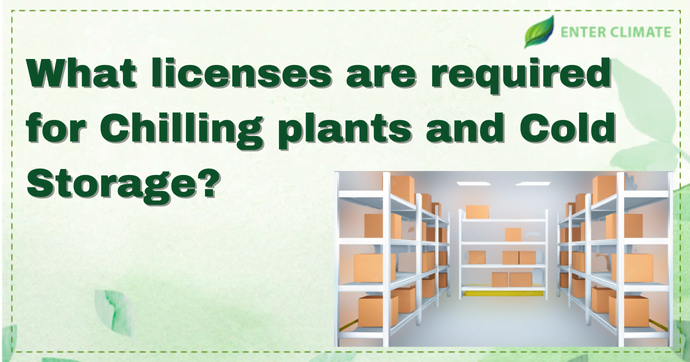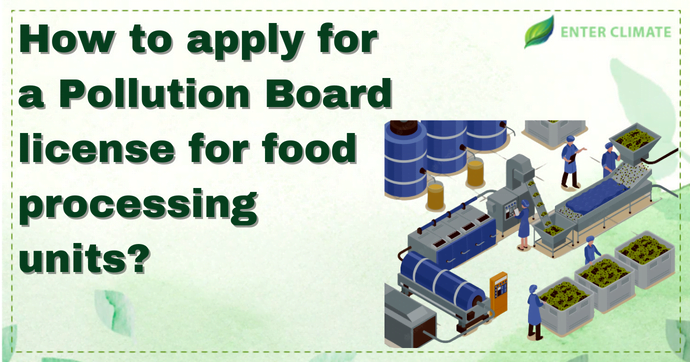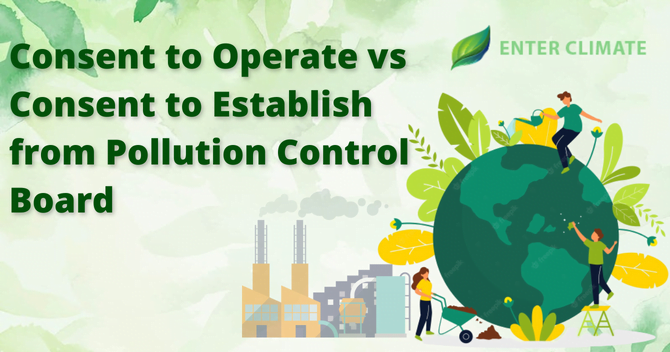What licenses are required for Chilling plants and Cold Storage?
 14 Dec, 2022
14 Dec, 2022 
India is the world’s second-largest producer of vegetables and largest producer of fruits. Though we produce these items in massive amounts, we still see considerable losses in terms of wasted food due to the perishability associated with such products. Wastage of these items due to the lack of cold storage and chilling units has been a big concern for the stakeholders and the storage and transportation of required businesses that can handle the storage. Chilling plants and Cold Storage units are in huge demand today. At low temperatures, the perishability of food items is reduced, and the shelf life increases. A cold storage unit uses a refrigeration system to maintain the desired cool environment for storing vegetables, fruits, and flowers, among other items. There are two types of cold storage, depending on the different facilities available, i.e. product-specific cold storage and multi-purpose cold storage. Although significant progress in the cold storage industry has been made since the green revolution, the increasing need for food security requires many more such as today.
Factors determining the growth of the Cold Storage Business in India
If an entrepreneur wants to start a cold storage business, he must prepare a detailed business plan. That business plan must include all cold storage business details of the product, services needed etc. In addition, some other factors like location play a vital role in this business. Cold storage should be close to the production or consumer centres. Selection of Cooling Equipment is also an important factor, as in summer, the equipment to be used must be able to cope up with power cuts and the inflow of increased items that need storage. Some important factors must be considered before finalising which equipment is for cold storage. The basic requirements for an ideal Chilling plants and Cold Storage plant are as follows.
- The temperature needs to be maintained (+-)2-4 degree Celsius or as per the need of the specific product.
- Land which will be used as a chilling plant and cold storage facility must be non-agricultural land.
- One must obtain a permission letter from local authorities before constructing the facility.
- The place must have proper drainage with road connectivity.
- There should be a site elevation.
- Soil testing must be done to check load-bearing strength.
- As safety measure, pressure and vacuum testing of the refrigeration system must be done.
- The cold storage facility must have fire alarms, fire extinguishers, and escape routes etc.
- Soft water must be used, and if it is not available, then a water-softening plant must be installed.
- Most important, you must have insurance for the cold storage facility.
Status of Chilling plants and Cold StorageInfrastructure in India
There are mainly three kinds of Chilling plants and Cold Storage in India, i.e. industrial cool rooms, modular room refrigerators and combi-refrigerators. The present status of the chilling plant and cold storage infrastructure in India indicates the need for such new business. Cold storage facilities are permitted to function for only 12 hours per day. The diverse agro-climatic conditions of India and inter-state transportation mean that cold storage is a must for many agricultural products. Although there is massive scope for increasing production, the lack of chilling plants and cold storage means that farmers succumb to the increasing pressure of selling the produce at dirt-cheap prices before it rots. The limited availability of cold chain facilities is becoming a bottleneck in tapping the potential. The chilling plants and cold storage facilities can significantly benefit from multi-purpose commodities like oranges, apples, potatoes, grapes, pomegranates, flowers, etc., benefiting both farmers and the facility owner.
Factors determining the growth of chilling plants and Cold storage
Popularity amongst Farmers: Cold storage helps the farmers get the desired price for their products and make their farm products readily available to consumers in new conditions at affordable and competitive prices.
Rise in demand for Packaged Foods: chilling plants and cold storage is used for storing packaged and processed food, meat products, medicines etc. The demand for packaged and ready-to-eat food items that do not require processing is on the rise. The changing lifestyle habits also create the need for global cold storage businesses.
Unique business model: This chilling plants and cold storage business requires a one-time investment of capital in purchasing cooling machinery, apart from electricity and general maintenance. Various updated machinery today in the market ensures prolonged sustainability and better performance. Other monthly costs include utility bill payments, staff salaries and other promotional expenses.
Licences required for chilling plants and cold storage
Consent Certificate
Chilling plants and cold storage, as well as ice-making units, used to be categorised as the orange category industry, but the CPCB has revised the list and placed it under the green category, meaning the pollution control measures that the entrepreneurs have to regulate have also been reduced. Although the unit functioning only involves re-circulation, the industry still needs to obtain a Pollution Control NOC under the Green category from the respective state pollution control board or the pollution control committee. Documents and details required for the consent certificate include
- Application on the SPCB portal
- Consent Fee
- Site Location Address with Survey/Plot/Khasra No / Pin
- Registered Office Address
- Investment in plant and machinery
- Plant Commissioning /Production Date
- Premises Area in Sq. meters
- Waste Water Generation KL/Day
- Disposal Mode
- Discharge Point
- Emission Type
- Air Pollution Control Measures
- Layout plan of the project/industry
- Investment proof CA certificate/annual report or Self Certificate
- NOC of Gramsabha / local body
FSSAI Licence
State FSSAI Licence: is required for cold storage businesses with a capacity of up to 50,000 MT (excluding those with a controlled atmosphere). The eligibility criteria for a state FSSAI Licence[1] is dependent on the capacity (more than 10,000 MT).
Central FSSAI Licence: Storage units other than those with a controlled atmosphere and cold environment and have a capacity of more than 50,000 MT.
Validity and Renewal of FSSAI Licence: FSSAI licenses are issued to cold storage businesses with a validity of 1 to 5 years as chosen by the business operator. As per FSSAI regulations, it is mandatory to apply for renewal of the storage license at least 30 days before the license expires. Non-renewal of licenses can invite a fine of Rs.100 per day until the renewal, and a lapse in renewal within the stipulated date can result in the old license becoming invalid.
Additional Licences needed by the Unit
- GST Registration
- Water supply sanction and connection from ULBs
- Fire NOC
- MSME Registration
Scope of Cold storage and its potential in India
The country’s estimated annual production of fruits and vegetables is about 130 million tonnes. This is 18% of our total agricultural output. Cold storage is needed for many purposes. For instance, foods that are alive and need distribution and sale, e.g. vegetables and fruits, foods that have been processed in some form like meat and fish products, and those commodities that benefit from cool temperature storage, e.g. beer, tobacco, khandsari, etc. Some benefits of cold storage plants are:-
- reduces the wastage of vegetables and fruits.
- Can be used to store vaccines or medicines.
- Off-season farm products can be made available at affordable rates.
- Helps in providing desired prices to farmers.
- Packaged/processed food are available to customers.
Conclusion
The wastage of fresh vegetables and fruits is quite high around the globe. As a leading producer of many agricultural produce, cold storage is necessary in the country to extend the marketing period, shelf life and quality of the produce. Although the initial investment for installing cold storage is high, it offers higher returns for a longer tenure and without any substantial input apart from essential requirements like electricity and maintenance. This is why cold storage businesses are thriving in developed and developing countries. Anyone with the proper licences and permits to run a storage facility can do so can start this business with the proper assistance and guidance from experts in the field.












